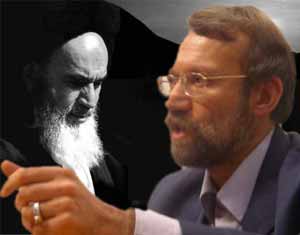05.03.2009
February 25, 2009 (the date of publication in Russian)
Alexander Sobko
CARROT AND STICK
Will Iran compromise with the West because of the slump in oil prices?
 Being a presidential candidate, Barack Obama repeatedly proclaimed he intended to hold negotiations with Iran without preliminary conditions. So there's nothing surprising in Mahmoud Ahmadinejad himself supporting the black-skinned presidential candidature, although the Iranian leader is notable for his aggressive rhetoric against the US governing body. But after inauguration the position of the US administration changed, and now it's announced that straight negotiations will become possible only in case Iran stops its uranium enrichment programs. And taking into account that a decision like that would be a total loss of face for Iranian government, we can conclude that now the matter is another freezing of the negotiation process.
Being a presidential candidate, Barack Obama repeatedly proclaimed he intended to hold negotiations with Iran without preliminary conditions. So there's nothing surprising in Mahmoud Ahmadinejad himself supporting the black-skinned presidential candidature, although the Iranian leader is notable for his aggressive rhetoric against the US governing body. But after inauguration the position of the US administration changed, and now it's announced that straight negotiations will become possible only in case Iran stops its uranium enrichment programs. And taking into account that a decision like that would be a total loss of face for Iranian government, we can conclude that now the matter is another freezing of the negotiation process.
Tehran in its turn reacted to the situation quickly: the day before the presidential inauguration the disclosure of a coup d'etat, prepared with the help of the USA, was announced.
The reasons of torpedoing the negotiations could be figured out long ago. But Nicolas Sarkozy, the President of France, announced them clearly few days ago. To his opinion, the negotiations between Tehran and Washington could begin only after the presidential elections in Iran, which will take place in June.
Indeed, we have many reasons to suppose that the USA decided to wait till the surname of a new President of Iran will be determined. And moreover, the US strategists must be thinking that the prolonging of Iran isolation course will favor the election of Mohammad Khatami, who is thought to be more liberal and West-directed.
Another fact proving the continuation of "cruel approach" to the negotiation process with the present Iranian government is Dennis Ross being appointed Special Advisor for the Gulf and Southwest Asia for U.S. Secretary of State Hillary Clinton. And he's a well-known vehement protector of Israel. But why do they suppose that this approach, which hasn't given any results for a long time, will work now?
In Iran the President is only the head of executive power, and the Supreme Leader of the country is ayatollah Ali Khamenei, who directs the political development of the country together with other clergy leaders. It's obvious, that even although the President is chosen by people, the Supreme Leader's support might affect the results of elections essentially.
Iran could afford isolation policy while oil prices were high. But now, during the financial crisis which might last a few years, the country could get an acceptable level of export income only in case of active developing of gas fields (Iran has the second place after Russia in the world rating of gas reserves). Official Tehran has already announced its readiness to take part in Europe gas supply few times, but hardly will the EU come to such collaboration till the USA reckon Iran among the "axis of evil".
Moreover, experts advice Obama to deal with Iran about the collaboration for the sake of normalization of the atmosphere in Afghanistan and Iraq. Tehran is really interested in being involved into these processes, as it will let the country strengthen its positions as a regional leader.
That's why this time the West may count upon easing of Iranian position on negotiations. At the same time it seems the EU is also going to support the U.S. pressure-policy. For example, the EU Council of Ministers has recently removed People's Mujahideen Organization of Iran (PMOI), which is oppositional to the present government, from the EU terror list. PMOI are considered to be terrorists even in the USA, which actually doesn't prevent a few thousands of its members from living under the US protection in a camp to the north from Baghdad. This EU decision will have both political and economic consequences. The changing in status will let the organization's leaders get access to dozens of millions dollars from the bills which had been blocked.
In addition, Angela Merkel has almost ceased federal export credit guarantees for German companies which collaborate with Iran. What's notable, this happened against the backdrop of negotiations between German E.ON and Iranian national oil company on joint project of producing liquefied natural gas.
Although, German energy business is carrying its own game in Iran, which is confirmed by the recent Gerhard Schroeder, ex-Chancellor of Germany, visit to the country. Details of the visit, which was officially called a private one, stay unknown. But it's acknowledged that Schroeder had conversations with all the main participants of pre-election race. The meeting with Mahmoud Ahmadinejad took place in a tense atmosphere, in contrast to the meeting with Mohammad Khatami, ex-President of Iran and present reformist candidate.
Schroeder also met Ali Larijani, the speaker of the Iran's Parliament. Actually Larijani, ex-negotiator on Iran's nuclear program, considered to be a moderate conservator, might become a compromise candidate during the presidential elections. Iranian clergy is likely to stop threatening the USA with Ahmadinejad; but at the same time, support given to Khatami might be interpreted as too serious concession and the sign of weakness both in the West and in the East. That's why Larijani's figure is the best for normalizing Iran's relations with the West without infringements of any side's interests.
Number of shows: 1296
 ENG
ENG 

 ENG
ENG 
